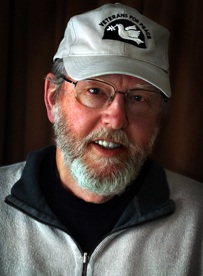All human beings (even animals) have inner lives that, at every moment, interplay with reality, especially all those "other people" out there. What we share with other people is what Friedrich Nietzsche called "the will to power." That is, all human beings want to be free and to do what they want. In his 1984 book titled The Politics of Meaning: Power and Explanation in the Construction of Social Reality, Peter Sederberg sifts this down to what he sees as the fundamental equation of politics: the struggle over meaning.
"Politics consists of all deliberate efforts to control systems of shared meaning. ... The existence of shared meaning is a social puzzle to be solved not by a philosophical determination of the meaning of an event but by comprehending how human beings establish mutuality in an inherently polysemantic world. ... In this dialectical fashion we are both the creators and the products of shared meaning." As Vargas Llosa notes, some people would discourage by any means available this kind of social dialectic.
The kind of politics Sederberg speaks to may be a lost art these days. For it to work right demands respectful exchange. It's a social enterprise requiring human interaction, which can seem the antithesis of political life in the age of the internet. In Sederberg's view, violence can and does tilt the scales in the political struggle for shared meanings. Complexity poses a major challenge, as does the internet. "As a society grows more complex," he writes, "the problem of generating and maintaining shared meaning also becomes demanding."
In a book titled Voluntary Simplicity: Toward a Way of Life That Is Outwardly Simple, Inwardly Rich, Duane Elgin describes four stages of growth and decline for western industrial civilizations. There's Growth Stages One and Two, and Decline Stages Three and Four. He concluded back in 1981, the beginning of the Reagan years, that the US was somewhere in Stage Three of Initial Decline. Thirty-six years later, at the beginning of the Trump regime, I'd conclude we're in the early part of Stage Four, the Breakdown stage. Here's some of how Elgin describes Stage Four Breakdown:
"This is the winter of growth for industrial civilization. It is an era of despair as all hope that things can return to their former status is exhausted. ... Social and bureaucratic complexity has reached overwhelming levels. The society and its institutions are no longer comprehensible and are increasingly out of control. Social consensus and a shared sense of social purpose have all but vanished. ... Leaders govern virtually without support. The regulatory apparatus ... [is] unable to cope with the overwhelming complexity, the loss of social legitimacy. ... The situation has become intolerable and untenable. The need for fundamental change is inescapable."
Feel familiar? Add to Elgin's list (he wrote before the internet) the incredible growth of secrecy and the rise of government surveillance of cell phones and computers that we only have a glimpse of, thanks to brave whistle-blowers and things like Wikileaks. Not to mention the issue of hacking. True privacy is a delusion and a joke; the best we can ask for is to be anonymous and deemed harmless. Frightening events like Stephen Paddock's Las Vegas massacre only intensify the fear and paranoia and lead to further violations of civil and human rights and more obsession with guns. Am I being paranoid? The reclusive novelist Thomas Pynchon famously said: "Even paranoids have enemies." Everything seems to contribute to the unraveling of the social glue holding things together, pushing us deeper into Stage Four Breakdown.
The bulk of coverage of the Las Vegas shooting is about victims, heroes and villains. The really important story that's rarely covered is about how and why guns and violence have become such an absurd part of US culture and why it's so difficult to restrict the easy access to lethal weapons designed for war.
Gun Porn and Male Alienation:
Next Page 1 | 2 | 3 | 4 | 5 | 6 | 7
(Note: You can view every article as one long page if you sign up as an Advocate Member, or higher).




